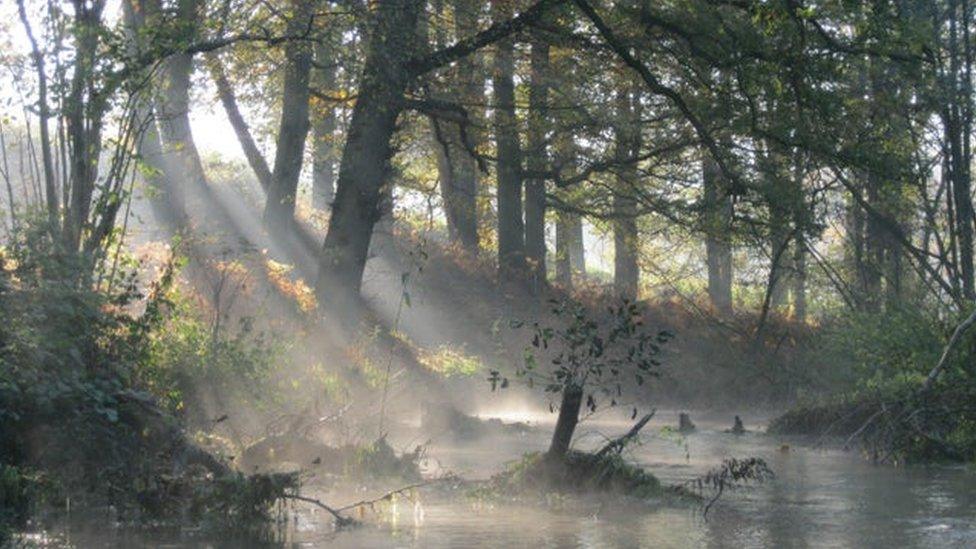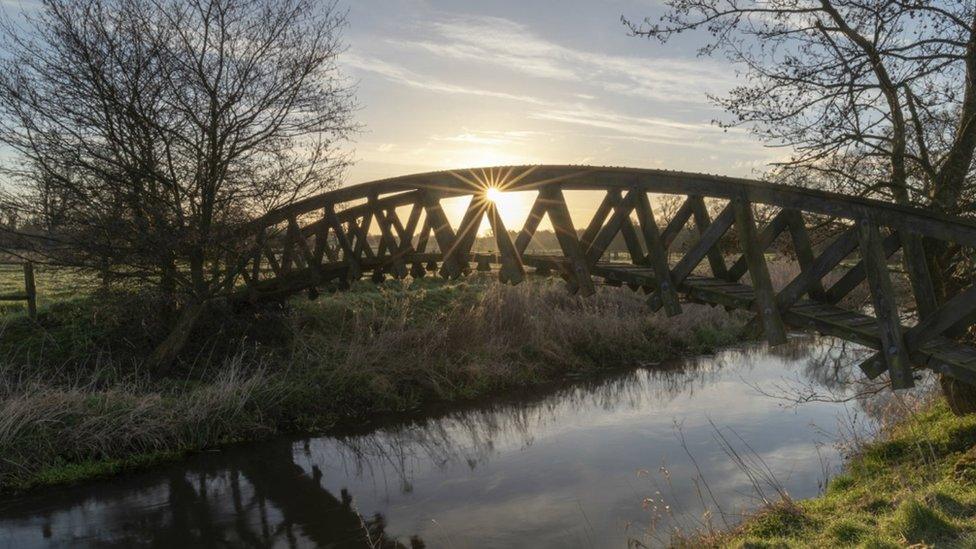Norfolk Broads river to get £1.6m wildlife boost
- Published

The National Trust said the conservation project at the Upper Bure cover riverbanks, meadows, ponds, footpaths, community engagement and volunteering
An area described as one of "England's rainforests" is due to be turned into a £1.6m conservation project.
The Upper Bure, which is one of only 200 chalk streams in the world and feeds into the Broads, will get National Trust funding.
The project aimed to benefit a host of wildlife, including water voles, dragonflies, toads, trout and eels.
National Trust project manager, Emily Long, said: "We want people to fall back in love with rivers."
The project will see clusters of wetland, ditches and ponds established beside the stream during the four-year scheme, creating wildlife corridors.

The European eel is one of many species the project hoped to encourage

Silvergate stream flows into the River Bure at Blickling
Work will also be carried out to return the stream, which the Trust said had been over-deepened and widened, to a meandering pattern.
The Bure is one of four main rivers that feed the Broads, which are man-made. It flows through the National Trust's Felbrigg and Blickling estates.
The Trust also planned to plant 8,000 trees along the Upper Bure, slowing the speed at which water runs into the stream in an attempt to boost resilience to climate change.
Ms Long said: "Chalk streams are a quintessential part of the English landscape and have huge ecological value - they're our equivalent of rainforests.
"Protecting these special habitats, as well as the species they support, is fundamental in our battle against the biodiversity crisis."
Amy Prendergast, catchment co-ordinator for the Environment Agency, described the stream as "precious".
"We hope this project will address key pressures in the Upper Bure, which will help fish populations," she said.

Find BBC News: East of England on Facebook, external, Instagram, external and Twitter, external. If you have a story suggestion email eastofenglandnews@bbc.co.uk, external